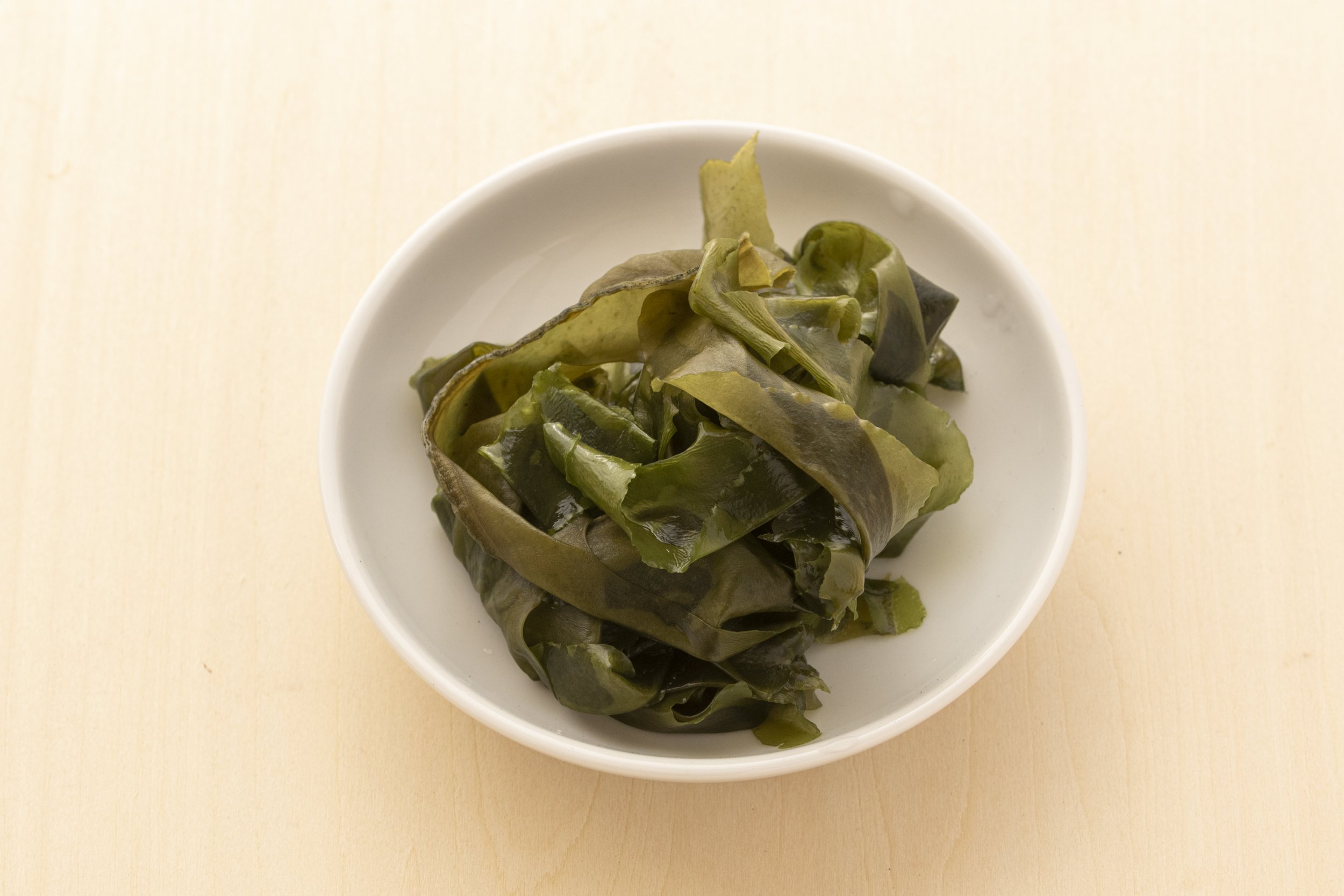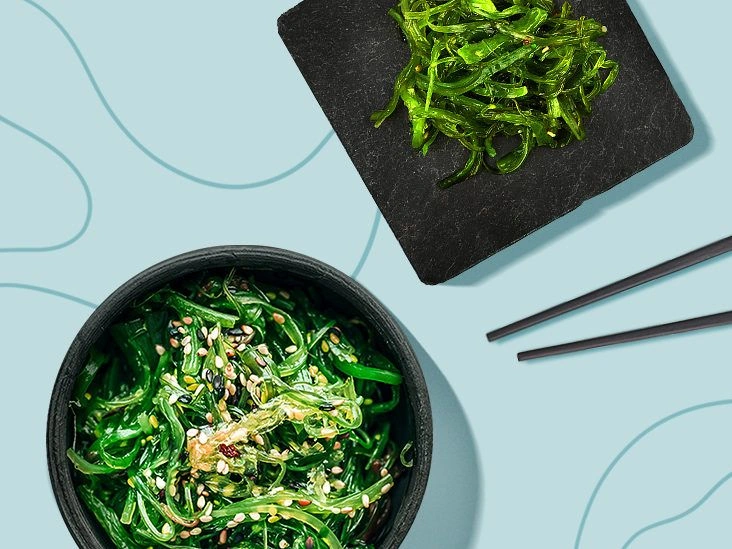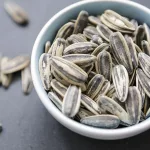Wakame is a nutritious edible sea vegetable that can contribute a variety of vitamins and minerals to your diet while remaining very low in calories. It’s been associated with a range of health perks, including reduced cholesterol and lower blood pressure.

Wakame is a variety of edible seaweed that has long been cultivated in Japan and Korea.
Besides lending a distinctive flavor and texture to soups and salads, wakame is calorie-light yet rich in several nutrients important for good health.
Moreover, it offers numerous potential advantages, such as supporting cardiovascular health and aiding weight management.
Below are 8 notable health benefits of wakame seaweed.
1. Low-Calorie and Nutrient-Dense
Wakame is very low in calories but provides a meaningful amount of essential nutrients.
Even small portions can help increase your intake of minerals like iodine, manganese, folate, magnesium and calcium to support your daily nutritional needs.
Just two tablespoons (10 grams) of raw wakame seaweed supplies (1, ):
- Calories: 5
- Protein: 0.5 grams
- Carbs: 1 gram
- Iodine: 280% of the Reference Daily Intake (RDI)
- Manganese: 7% of the RDI
- Folate: 5% of the RDI
- Sodium: 4% of the RDI
- Magnesium: 3% of the RDI
- Calcium: 2% of the RDI
Each serving also contains vitamins A, C, E and K, in addition to iron, copper and phosphorus.
Summary Wakame is extremely low in calories yet rich in iodine, manganese, folate, magnesium and calcium.
2. High Iodine Content Supports Healthy Thyroid Function
Complementing its strong nutrient profile, wakame is an excellent source of iodine.
Wakame contains about 42 mcg of iodine per gram, roughly 28% of the RDI.
Iodine is a critical mineral used by the body to synthesize thyroid hormones, which regulate growth, metabolism, protein synthesis and cell repair.
Worldwide, iodine deficiency is common, with estimates suggesting around two billion people may be affected.
A lack of this essential micronutrient can contribute to hypothyroidism, where the thyroid cannot produce enough hormone to maintain normal function.
Signs of iodine deficiency can include weight gain, fatigue, hair thinning and dry, flaky skin.
Summary Wakame provides iodine, which is vital for thyroid health and hormone production.
3. May Help Lower Blood Pressure and Reduce Heart Disease Risk
Elevated blood pressure puts added strain on the heart and blood vessels, weakening cardiac function and raising the risk of heart disease.
Some evidence indicates that including wakame in your diet may assist in maintaining healthy blood pressure and supporting heart health.
For example, a ten-week study found that compounds extracted from wakame significantly lowered systolic blood pressure in rats.
Another study of 417 children observed that greater seaweed consumption was linked to reduced blood pressure.
Nonetheless, more human trials are needed to determine wakame’s effects on blood pressure in the general population.
Summary Animal and some human studies suggest wakame may help lower blood pressure, but additional research is required to confirm cause and effect.
4. May Improve Heart Health by Reducing Cholesterol
Cholesterol is involved in many bodily functions, from hormone synthesis to fat digestion.
But elevated cholesterol in the bloodstream can accumulate in arteries and obstruct circulation, raising the risk of heart attack and stroke.
While most research so far comes from animal models, several studies have found wakame may help reduce cholesterol and support cardiovascular health.
One study reported that wakame supplementation effectively decreased levels of “bad” LDL cholesterol in rats.
Similarly, another animal trial showed that dried wakame powder changed the expression of specific genes to significantly lower cholesterol after just 28 days.
Despite these encouraging findings, more studies in humans are necessary to understand wakame’s impact on cholesterol levels.
Summary Animal research indicates wakame could reduce cholesterol and foster heart health, but human data are limited.
5. May Possess Cancer-Fighting Effects
One striking potential benefit of wakame is its capacity to inhibit cancer cell growth in some laboratory and animal studies.
For instance, an animal study found that wakame administration helped slow the growth and spread of breast cancer cells in rats.
Another in vitro study showed that particular compounds derived from wakame were effective at suppressing the growth of colon and kidney cancer cells.
However, findings are mixed. A study of 52,679 women reported that higher seaweed intake was associated with an increased risk of thyroid cancer, possibly due to excessive iodine intake.
Therefore, further investigation is needed to clarify how wakame might influence cancer development in humans.
Summary Lab and animal studies suggest wakame may inhibit cancer cell growth, but evidence is inconclusive.
6. May Lower Blood Sugar and Improve Insulin Sensitivity
Some research indicates wakame may help reduce blood glucose levels and enhance insulin sensitivity, benefiting metabolic health.
In one four-week trial, consuming 48 grams of seaweed daily significantly lowered blood sugar in 20 people with diabetes.
Animal research also showed wakame prevented insulin resistance — a condition that impairs the body’s ability to use insulin effectively and leads to elevated blood sugar.
However, studies on wakame’s effects on blood sugar are still limited, and more human research is necessary to determine its true impact.
Summary Animal studies indicate wakame can reduce glucose production and prevent insulin resistance, but human evidence is scarce.
7. May Support Weight Loss
If you’re aiming to lose weight, adding wakame to your meals could be beneficial.
It’s nutrient-rich and has shown potential to support weight control in animal experiments.
One study found that wakame extract supplementation prevented weight gain in mice fed a high-fat diet.
Another trial observed anti-obesity effects in rats, with reductions in fat tissue.
Some research has also reported that diets regularly including seaweed can reduce body weight and waist circumference.
Because most evidence is from animal studies, more robust human trials are needed to assess wakame’s effects on body weight.
Summary Several animal studies show wakame can help prevent weight gain and reduce body fat.
8. Versatile, Tasty and Simple to Incorporate Into Meals
Wakame is enjoyed worldwide for its tender texture and mild, pleasant flavor.

It’s highly adaptable and can be used in a wide range of recipes and dishes.
Commonly sold dried, wakame is usually soaked in water for about ten minutes before use to rehydrate it and wash away excess salt.
After soaking, wakame makes a great substitute for leafy greens like lettuce, spinach or arugula in salads.
You can also stir the strips into soups for extra flavor and nutrients.
Alternatively, serve wakame as a side dish dressed with a splash of soy sauce or rice vinegar to complement your meal.
Summary Soaked wakame can be added to soups, salads and side dishes to boost the nutrient content of your favorite meals.
Possible Side Effects
Although wakame is generally healthy, consuming excessive amounts can cause adverse effects in some individuals.
Certain products may contain high sodium levels, which can raise blood pressure in sodium-sensitive people.
Wakame is also rich in iodine, providing about 28% of the RDI per gram.
While iodine is crucial for thyroid hormone synthesis, consuming too much can damage thyroid health and cause symptoms such as fever, abdominal pain, nausea and diarrhea.
Seaweed can also contain trace heavy metals and contaminants, though multiple studies have found the concentrations are typically too low to pose a major concern.
Summary Wakame is high in iodine, and some varieties may be high in sodium. Both can lead to negative effects if overconsumed. Seaweed may also carry small amounts of heavy metals.
The Bottom Line
Wakame is a nutrient-dense, edible seaweed that can add a variety of vitamins and minerals to your diet while remaining very low in calories.
It’s been associated with several potential health benefits, including reduced cholesterol, lower blood pressure, improved weight management and better blood sugar control.
Best of all, wakame is easy to enjoy in many forms as part of a balanced diet, making it simple to take advantage of its healthful qualities.

























Leave a Reply
You must be logged in to post a comment.